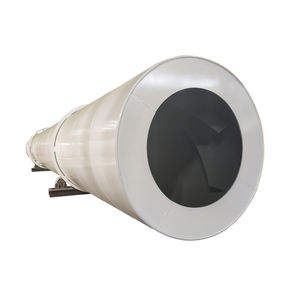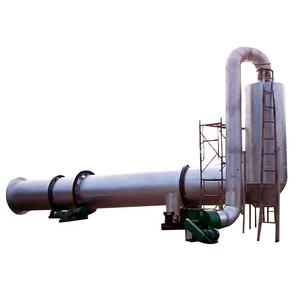Securing a permanent heavy machinery job as a mechanical engineer requires a strategic understanding of industries that rely on large-scale equipment for operations. Heavy machinery is integral to sectors such as construction, mining, agriculture, manufacturing, oil and gas, and transportation. Each of these industries offers distinct opportunities for mechanical engineers to design, maintain, and optimize machinery while ensuring operational efficiency and safety. Below is an analysis of key sectors where mechanical engineers can pursue long-term careers in heavy machinery.
(what could i get a permanent heavy machinery job at)
**Construction Industry**
The construction sector is a primary employer of mechanical engineers specializing in heavy machinery. Infrastructure projects—such as highways, bridges, dams, and urban development—require equipment like excavators, bulldozers, cranes, and loaders. Engineers in this field focus on machinery design, maintenance protocols, and troubleshooting operational issues. Companies such as Caterpillar, Komatsu, and Volvo Construction Equipment often hire engineers for roles in product development, site management, or technical support. Additionally, government-led infrastructure initiatives in regions with rapid urbanization, such as Asia and the Middle East, create sustained demand for skilled professionals.
**Mining and Resource Extraction**
Mining operations depend on heavy machinery for drilling, hauling, and processing minerals. Mechanical engineers in this sector work on equipment like dragline excavators, haul trucks, and crushers. Employers include global mining corporations (e.g., BHP, Rio Tinto) and equipment manufacturers (e.g., Liebherr, Hitachi). Roles often involve improving machinery durability in harsh environments, reducing downtime through predictive maintenance, and ensuring compliance with safety regulations. This industry is particularly prominent in resource-rich countries like Australia, Canada, and South Africa.
**Agricultural Machinery**
The agriculture sector utilizes heavy machinery such as tractors, harvesters, and irrigation systems. Mechanical engineers in this field contribute to designing fuel-efficient, automated, or precision farming equipment. Companies like John Deere, AGCO, and CNH Industrial offer roles in R&D, testing, and field service. With the growing emphasis on sustainable farming practices, engineers may also engage in developing electric or hybrid machinery to reduce environmental impact.
**Heavy Equipment Manufacturing**
Manufacturers of industrial machinery hire engineers for design, production, and quality assurance. This includes creating hydraulic systems, engines, and transmission components. Employers range from OEMs (original equipment manufacturers) to specialized component suppliers. Engineers in this sector must stay updated on technological advancements, such as automation and IoT integration, to enhance machinery performance and connectivity.
**Oil and Gas Industry**
The oil and gas sector relies on heavy machinery for drilling, pipeline construction, and refinery operations. Mechanical engineers here focus on equipment like pumps, compressors, and offshore drilling rigs. Companies such as Schlumberger, Halliburton, and ExxonMobil seek engineers to optimize machinery for extreme pressures, temperatures, and corrosive environments. Expertise in failure analysis and reliability engineering is highly valued.
**Transportation and Logistics**
Ports, railways, and logistics hubs use heavy machinery for cargo handling, including cranes, forklifts, and container handlers. Mechanical engineers in this field ensure equipment efficiency and safety while adapting to automation trends. Employers include port authorities, rail operators, and logistics firms like Maersk or Deutsche Bahn.
**Government and Defense**
Public sector roles involve maintaining heavy machinery for military, municipal, or disaster-response operations. Engineers may work on tanks, armored vehicles, or construction equipment used in public projects. Government agencies often provide stable employment with opportunities for civil service exams or defense-sector recruitment.
**Skills and Qualifications**
To secure these roles, a bachelor’s degree in mechanical engineering is essential, with some positions requiring a master’s or Professional Engineer (PE) license. Proficiency in CAD software (e.g., SolidWorks, AutoCAD), knowledge of industry standards (ISO, ASME), and experience with predictive maintenance tools are critical. Soft skills like project management, teamwork, and problem-solving enhance employability.
**Geographic Considerations**
Regions with active industrial or infrastructure projects—such as the Gulf Cooperation Council (GCC) countries, North America, and Southeast Asia—often have higher job availability. Willingness to relocate or work in remote sites (e.g., mining camps or offshore platforms) can expand opportunities.
**Job Search Strategies**
Target companies directly via their career portals, leverage LinkedIn for networking, and engage with industry-specific recruitment agencies. Professional organizations like the American Society of Mechanical Engineers (ASME) offer job boards and certifications to strengthen credentials.
**Emerging Trends**
The shift toward electrification, autonomous machinery, and sustainability is reshaping the heavy machinery sector. Engineers with expertise in battery technology, AI-driven automation, or emission reduction will be in high demand.
(what could i get a permanent heavy machinery job at)
In conclusion, mechanical engineers seeking permanent roles in heavy machinery should align their skills with industry demands, target high-growth sectors, and stay adaptable to technological advancements. By focusing on sectors with long-term infrastructure or resource needs, engineers can build stable, rewarding careers in this field.


